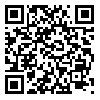BibTeX | RIS | EndNote | Medlars | ProCite | Reference Manager | RefWorks
Send citation to:
URL: http://jcp.khu.ac.ir/article-1-3925-en.html
The present study aimed to investigate the mediating role of cognitive self-efficacy in the relationship between early maladaptive schemas and psychological vitality in individuals with major anxiety. The research design was applied and correlational in nature. The statistical population included 120 clinical medical students from Golestan University (2024), selected via convenience sampling. Data were collected using the Early Maladaptive Schema Questionnaire (Young, 2005), Beck Anxiety Inventory, the Vitality Scale (Ryan & Frederick, 2002), and the Self-Efficacy Scale (Scherer et al., 2000). Pearson correlation and regression analyses were used to examine the data. The findings indicated that early maladaptive schemas were significantly associated with both cognitive self-efficacy and psychological vitality. Moreover, cognitive self-efficacy was significantly related to vitality, suggesting a mediating role in the impact of maladaptive schemas on vitality. These results underscore the importance of cognitive self-efficacy as a core mechanism through which maladaptive cognitive-emotional patterns affect psychological well-being, highlighting the potential value of schema-focused cognitive interventions in enhancing vitality in individuals with major anxiety.
Received: 2024/10/12 | Accepted: 2024/12/21 | Published: 2024/12/21
| Rights and permissions | |
 |
This work is licensed under a Creative Commons Attribution-NonCommercial 4.0 International License. |





